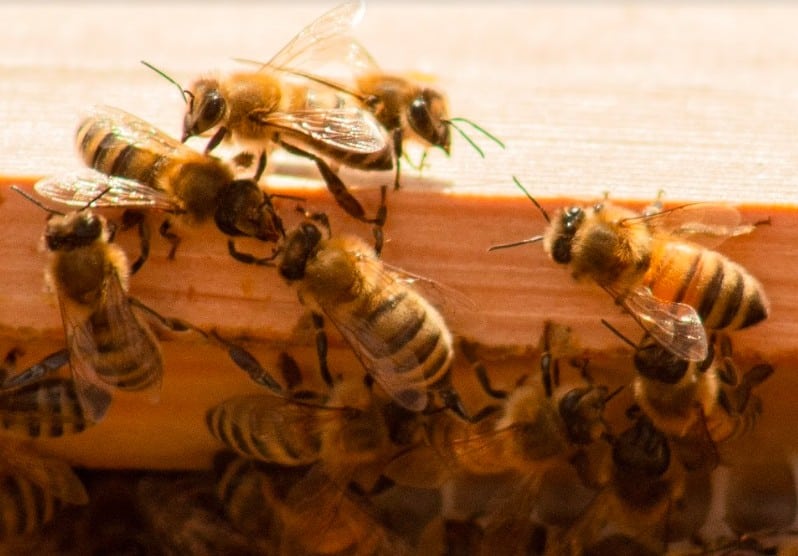I: What is your name and what is your role?
B: My name is Barbara Baer-Imhoof, I am Assistant Specialist for Pollinator Health at CIBER (Center for Integrative Bee Research), Department of Entomology.
I: Could you tell us tweet style, what is your area of research?
B: At the moment, I am working on finding an odour to repel bees from flowering crops treated with insecticides, in collaboration with insect olfaction specialists here at UCR, as well as chemists from an international company. In addition, I am interested in finding remedies against honey bee pests and starting a local breeding programme.
I: When did you start developing this passion for this field of research?
B: During my PhD in Switzerland, in 1996. I actually started by studying lizards and their behaviour. We had a professor who gave a talk and it was really impressive. He talked about parasites and how they spread in colonies and environments. It was a bit like a crime novel and my greatest passion was born from there!
I: As a child, what did you dream of becoming?
B: I was interested in nature and animals. I grew up in the country where I took long walks and always had plenty of free space to roam and explore. I knew where everything was in my grandmother’s garden, for example I knew under which bush to find a certain type of snail because it had a certain colour! I thought it was normal! But I also loved chocolate, so I wanted to be someone who made chocolate animals or an astronaut. That would have been nice!
I: Is that how it was or have things changed?
B: Sometimes at school, during my PhD, it was hard. I worked in banking for a while, but I found that it wasn’t for me. Also, I found that many other researchers had the same problems as me, so I went back to science! I still like chocolate and animals and my son wants to be an exobiologist.
I: Which two areas of research do you think are most interesting?
B: Definitely research that includes measures against climate change, as well as research on safeguarding human nutrition, which includes research on pollinator health.
I: In your opinion, what is the main threat to pollinators in general nowadays?
B: Absolutely climate change, pesticides, pests and bad beekeeping.
I: If you had a budget of one million euro, how would you use it to help pollinators?
B: Develop sensors to ‘sniff out’ bee diseases or measure other hive stressors. I think it would be very interesting to develop an app that alerts beekeepers that they need to help their hives. The alarm should arise well before the hives are too stressed or sick to be saved.
I: In your opinion, what scientific breakthrough could realistically be achieved in the next 5-10 years that could have a big impact on the protection of pollinators in your area?
B: As I said before, I consider sensors and apps to be fundamental in helping us to better monitor pollinators! We have a great group here working on developing them to help beekeepers in their work!
I: What is your favourite insect?
A: Bumblebees and honeybees!
